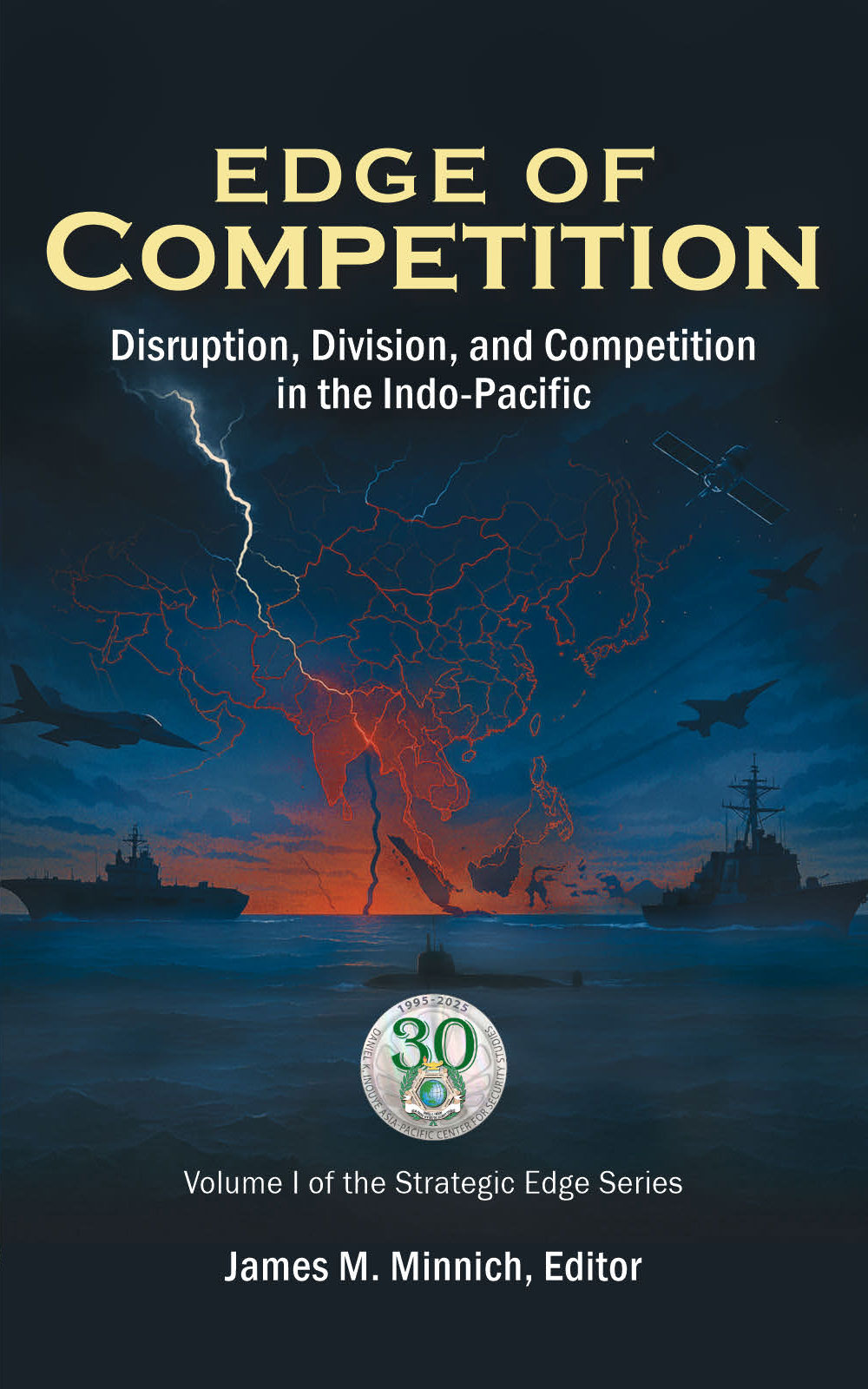Chapter 11
Pacific Small States, Big Stakes
Kevin D. Stringer and Madison Urban
The United States engages Pacific Island countries to support their ability to protect their sovereignty and sovereign rights against external threats and aggression.
– Admiral Samuel J. Paparo, Commander U.S. Indo-Pacific Command, 2025
Introduction
Scattered across Oceania’s vast blue, the Pacific microstates may be small in size, but they are strategically indispensable. From Palau to the Cook Islands, these sovereign states form a vital arc in the Indo-Pacific, a region increasingly defined by intensifying competition between the United States and the People’s Republic of China (PRC). Once a peripheral to global power politics, these microstates now stand at the center of a shifting strategic landscape.
Yet this contest in Oceania transcends the U.S.-China rivalry. It is also a struggle over diplomatic recognition, influence, and legitimacy—seen in Taiwan’s efforts to retain allies, China’s campaign to isolate it, and Australia and New Zealand’s initiatives to anchor regional stability. With their geostrategic location, sovereign agency, and equal standing in global institutions, Pacific microstates are no longer on the sidelines—they are swing states in a crowded geopolitical arena.
Historically overlooked by Washington, these nations have been actively courted by Beijing through infrastructure projects, financial inducements, and persistent diplomatic outreach. To remain competitive, the United States must move beyond episodic gestures and overreliance on allies. What is needed is a sustained, sovereign-centered strategy secured in long-term partnerships and shared priorities.
Adopting the United Nations (UN) Secretary General’s 1967 definition of microstates—sovereign countries characterized by exceptionally small populations and limited resources—this chapter focuses on the 13 Pacific microstates recognized by the United States with populations under one million: Fiji, Kiribati, Nauru, Samoa, the Solomon Islands, Tonga, Tuvalu, Vanuatu, the Cook Islands, Niue, the Federated States of Micronesia, the Marshall Islands, and Palau. Despite their scale, these states wield significant influence in domains from maritime governance and fisheries to undersea cables and strategic basing.
This chapter argues for a U.S. strategy that effectively matches its presence with its promise in the region. It proposes a four-pillar framework for sustained security cooperation: (1) robust maritime governance led by the U.S. Coast Guard (USCG) and the National Oceanic and Atmospheric Administration (NOAA), (2) strengthened U.S.-European Union collaboration on maritime domain awareness, (3) a strategic expansion of Civic Action Teams (CAT) across the region, and (4) targeted deployments of U.S. Army Reserve Civil Affairs units. These initiatives represent a durable, sovereignty-respecting approach to building resilience and trust—one designed to meet the challenges of the moment and reinforce America’s strategic advantage.






